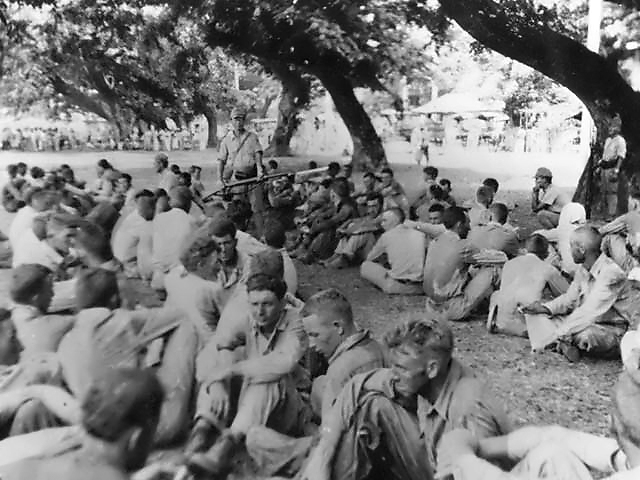
Private first class Norman Hicks Hinckley Jr. is the one who started all this.
His is the first story Alma Salm shares in his memoir. Hinckley’s story is what inspired me to research the men Alma served with. To discover the lives behind the war-time stories. To tell their stories.
“Take the case of Hinckley,” Salm invited me in the opening pages of his memoir. Hinckley had a “superb determination not to die—his way of hurdling and conquering so many obstacles—somehow tugged extra hard at the heart strings.”* Salm describes that determination, as well as the horrific circumstances of Hinckley’s death.
And those 560 words did, as Salm promised, tug at my heart strings, but they did more than that: They created within me a desire to know more about PFC Hinckley—his life, his hopes, his dreams—who died in a prison camp on a disease-ridden, war-torn island in the South Pacific, away from his family and his friends.
So I started researching.
And soon Norman Hinckley wasn’t just another soldier from WWII, just another number or star or name or whatever else servicemen sometimes become. He was a 25-year-old man whose life was decimated by a war that he didn’t start but that he gave his life to fight.
And then I considered the other men Salm mentioned in his memoir. What about them? What was their before, during, and after (if there was an after) the War? At first this was a personal, pet project. But as I came to know these men, I knew their stories weren’t just for me.
This is why I write: to tell their stories.
Too many of these men—too many WWII soldiers in general—were in their mid-twenties when they died. They weren’t married and didn’t have children. Hopefully all families remember the uncle or the great-uncle who served and/or died in WWII. But family memory to often fades. And as the years go by, who is left to remember them, their service, their sacrifice?
This is why I write: to remember these men.
Salm’s memoir and the stories I’ve uncovered are for everyone, especially the families of the service men. Salm offers a glimpse of POW life that will be of interest to WWII buffs. But, more importantly, Salm offers specific details about the men who lived in those prison camps—details those service men’s family likely don’t know.
This is why I write: to share with their families.
And, above all, I write to honor my great-grandfather and the men who were his brothers-in-arms.
*Alma E. Salm, “Luzon Holiday,” (unpublished manuscript, ca. 1945), paper photocopy of typewritten original, pp 1–2.
